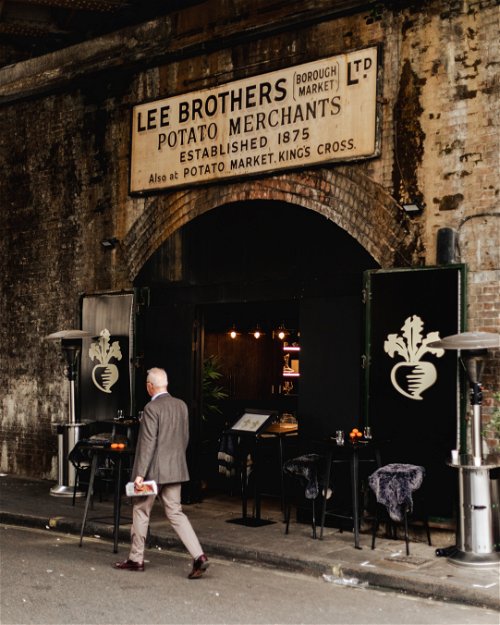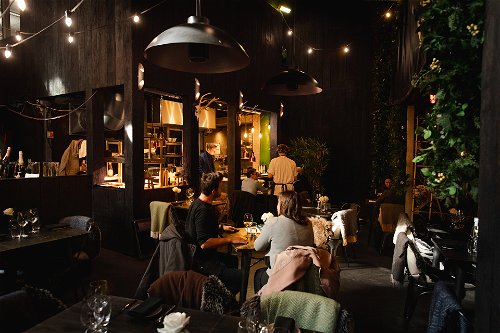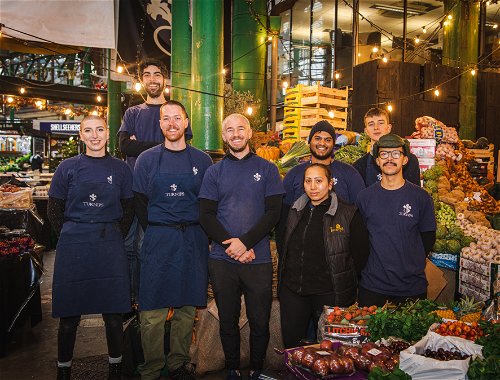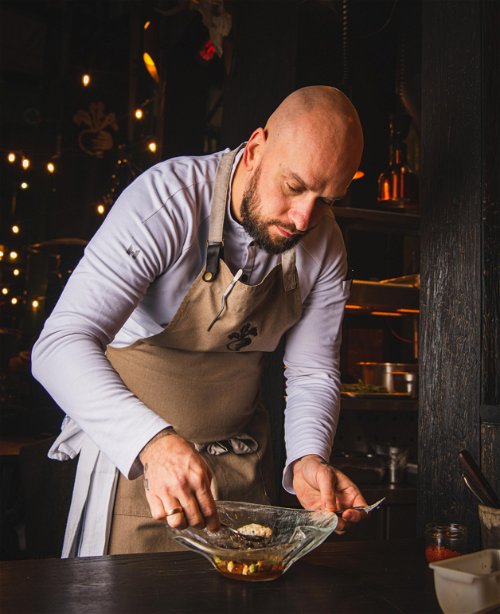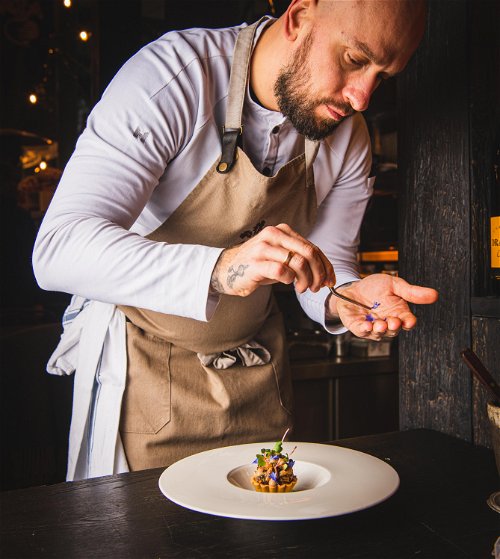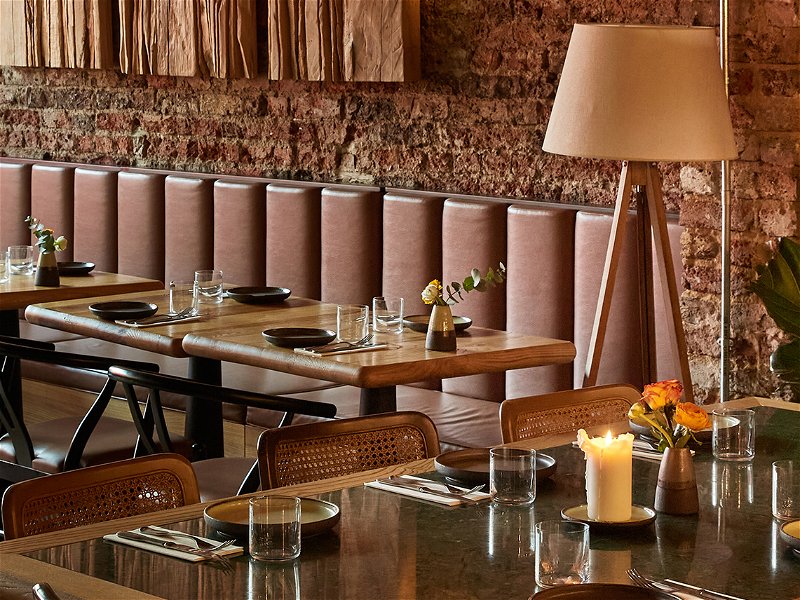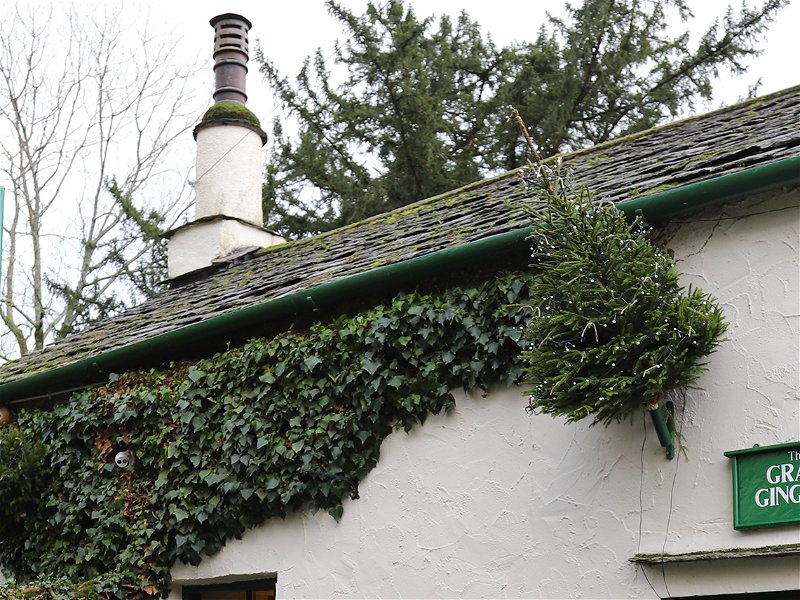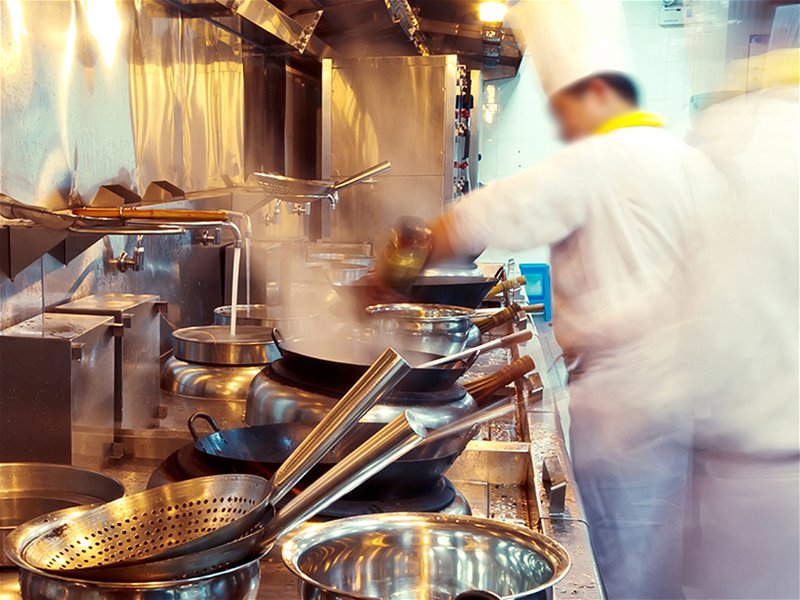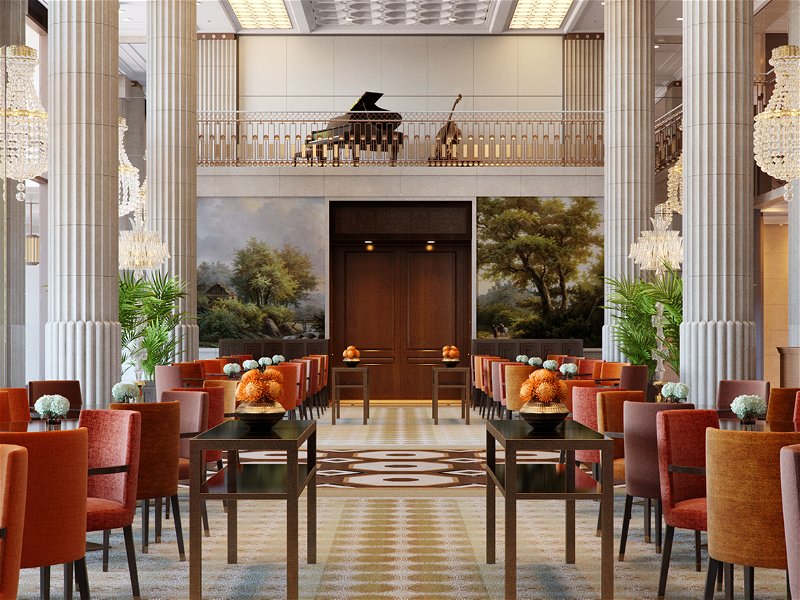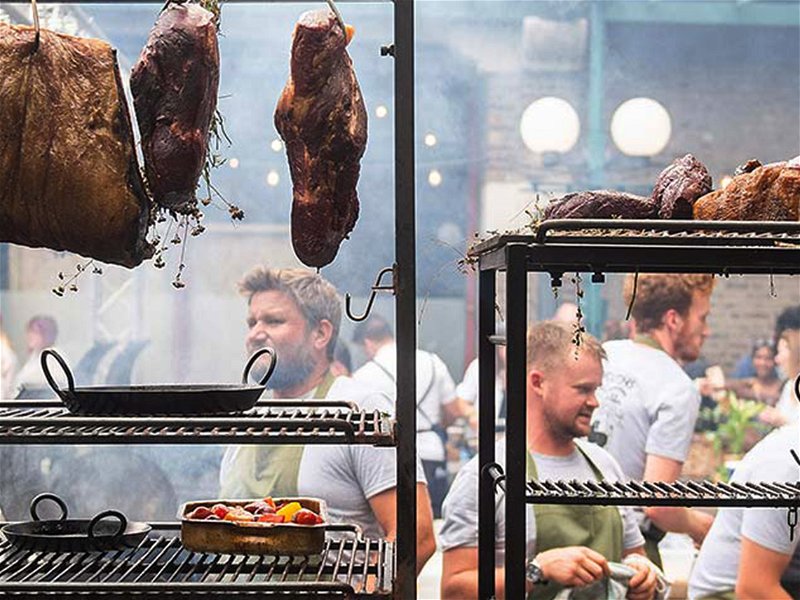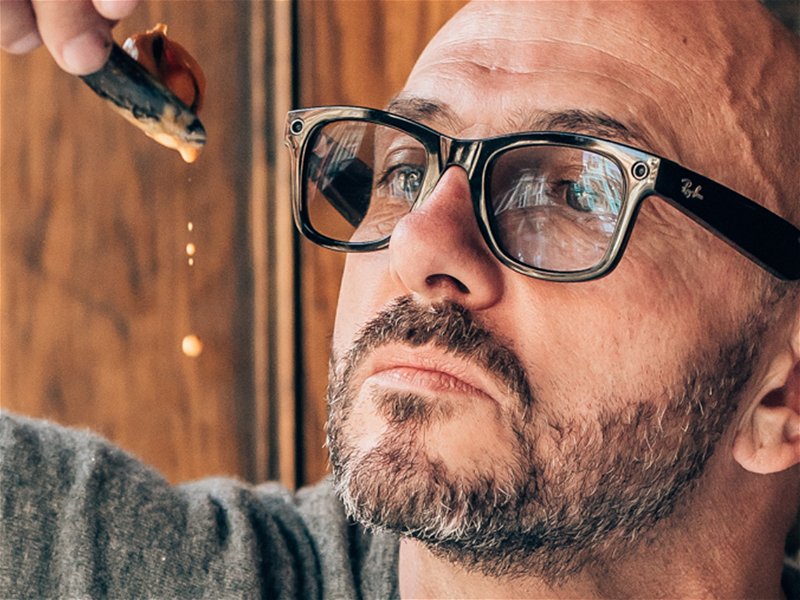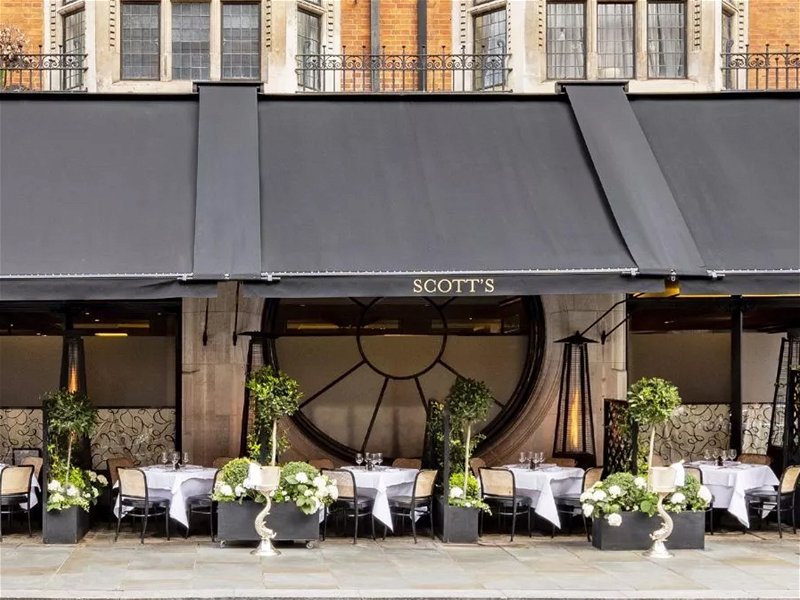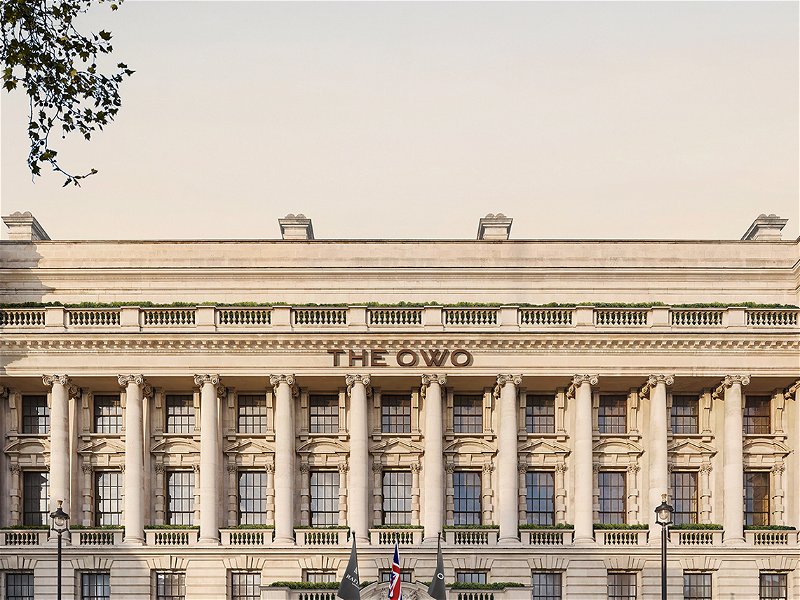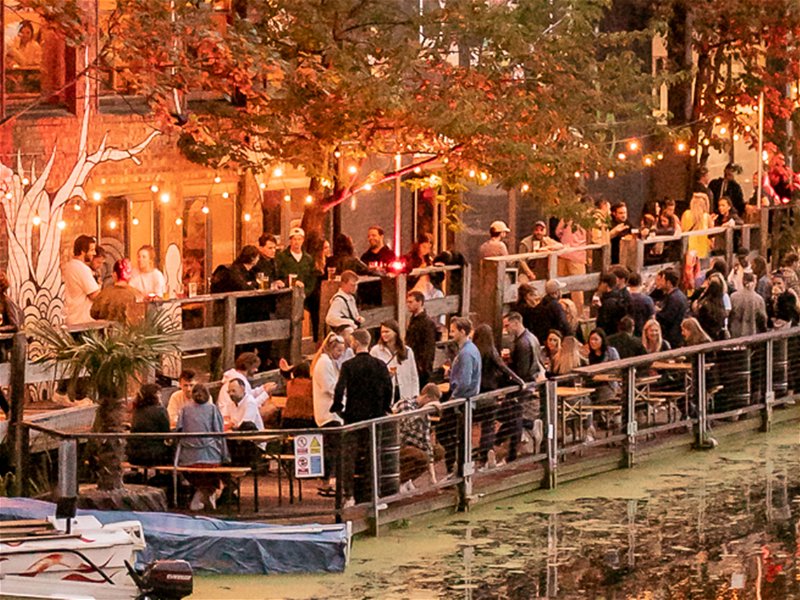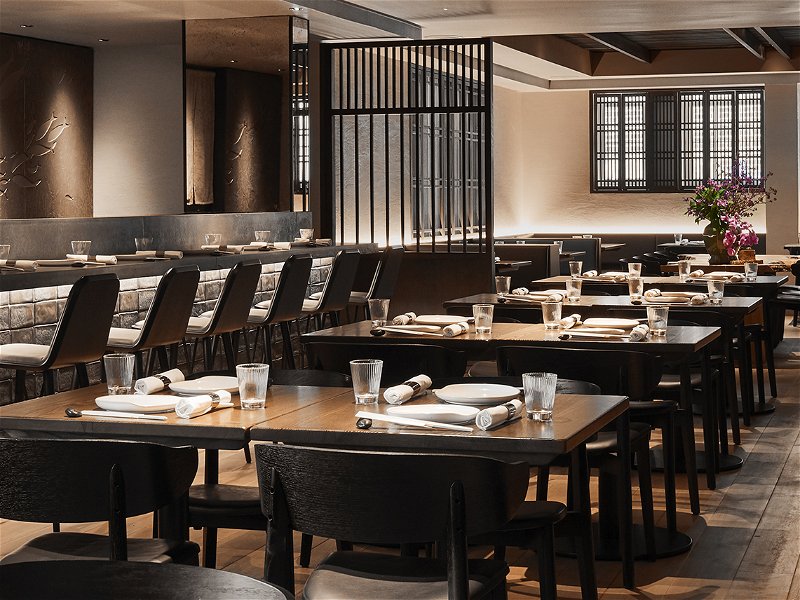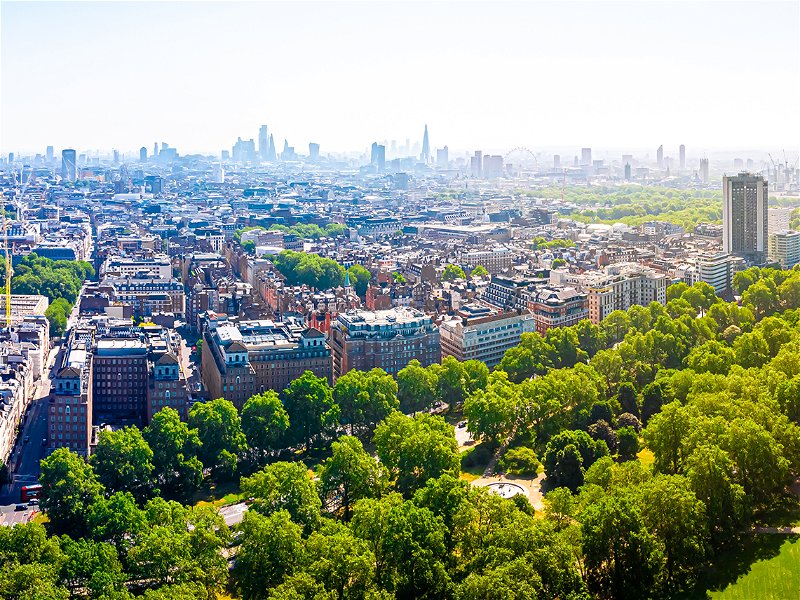Is this what the restaurant of the future looks like?
The Turnips restaurant at Borough Market in London is an offshoot of a market stall. Falstaff spoke to chef Tomas Lidakevicius and director Charlie Foster.
At Borough Market in London, there is a restaurant that was created after an unusual idea, and in the course of a unique collaboration: Turnips is, so to speak, the offspring of a greengrocer at the market, also called Turnips, and is one of the best known there. When health workers needed meals during the Covid lockdown, Turnips director Charlie Foster put together packages for them with the help of some chefs; one of these chefs was Tomas Lidakevicius, a Lithuanian who had already made a name for himself in the English capital.
And then the two of them came up with the idea of simply founding a restaurant that uses exactly these fresh ingredients from the greengrocer, at a time that freshness, origin, regionality and seasonality are becoming increasingly important. Transparency towards the guests is also important, their clientele wanting to see how their food is prepared. All this is possible at Turnips, and today the restaurant is one of the best-known in London.
In conversation with Falstaff, Charlie and Tomas explain what matters to them. “For us, it was simply a captivating idea to make the best out of world-class products. We want to show what top chefs can create with those products,” said Charlie. “Working with Tomas was simply the best thing that could have happened. Normally, we can only tell our customers what they can get from the products in their kitchen. Now we can show them ourselves.”
“The special and particularly challenging thing is working with the seasons, for example, asparagus in May,” explained Tomas. “In this respect, there has also been a change in thinking among guests, who accept this seasonality and sometimes even expect it. A restaurant like Turnips shows how it can be done.”
The highest quality is the priority for both of them. “In France, this is already a matter of course; everyone there only thinks about quality,” added Tomas. “In England this is not always the case everywhere, but attitudes are changing – in kitchens at home, when buying products, and in restaurants.”
In practice, dealing with excellent, fresh products also brings many challenges, as Tomas explained: “I can’t plan long in advance; I always have to keep flexibility.” He can only rave about the cooperation with Turnips – meaning the greengrocer. “Usually, as a chef, you never know exactly what the products you order and need for the dishes will look like. Here it's completely different: we are on-site and know everything exactly.”
“Tom is the best when it comes to creating excellent dishes from available ingredients,” added Charlie. “Usually, chefs would think differently: about the dish and its ingredients. Here it's the other way around. Working with Tom is just a dream.” The fight against waste is also an issue at Turnips – meaning the restaurant – with products used that don't look so good and would therefore fail with buyers at the market or with some chefs. “It’s not about looks; it’s about quality,” Charlie stressed. He says the aim is always to use as much as possible, even if 100 per cent is not (yet) possible.
Turnips is the talk of the town, even though the competition in London is fierce. “The attitude that fine dining is not necessarily about the stiff procedure and posturing is also catching on now,” added Tomas. “Turnips has always emphasised a casual, relaxed approach to the subject, which goes well with the guests.”
Doesn’t it make sense to open a second restaurant? “That could happen, but not right away. Now let’s see if we can use this restaurant to give the people of London that positive feeling that is so important to us,” said Charlie.

